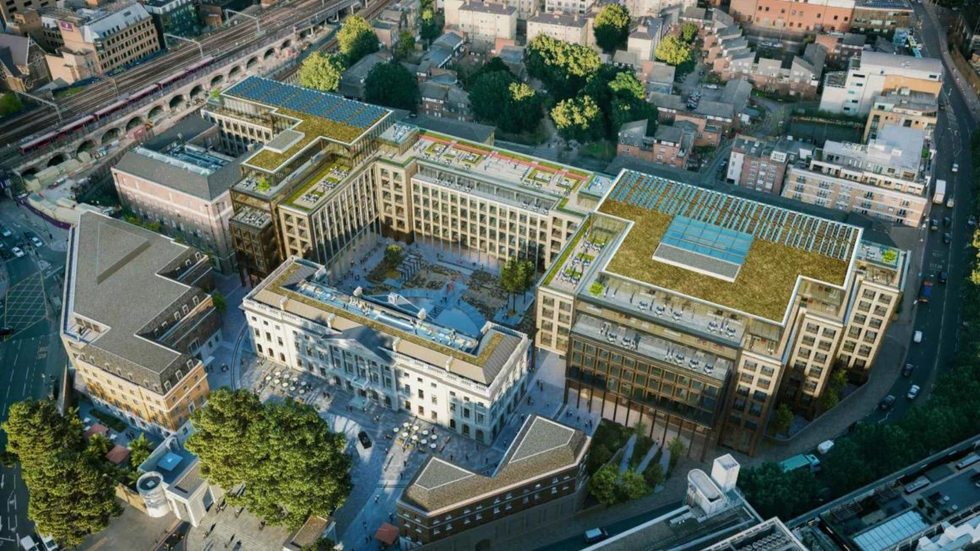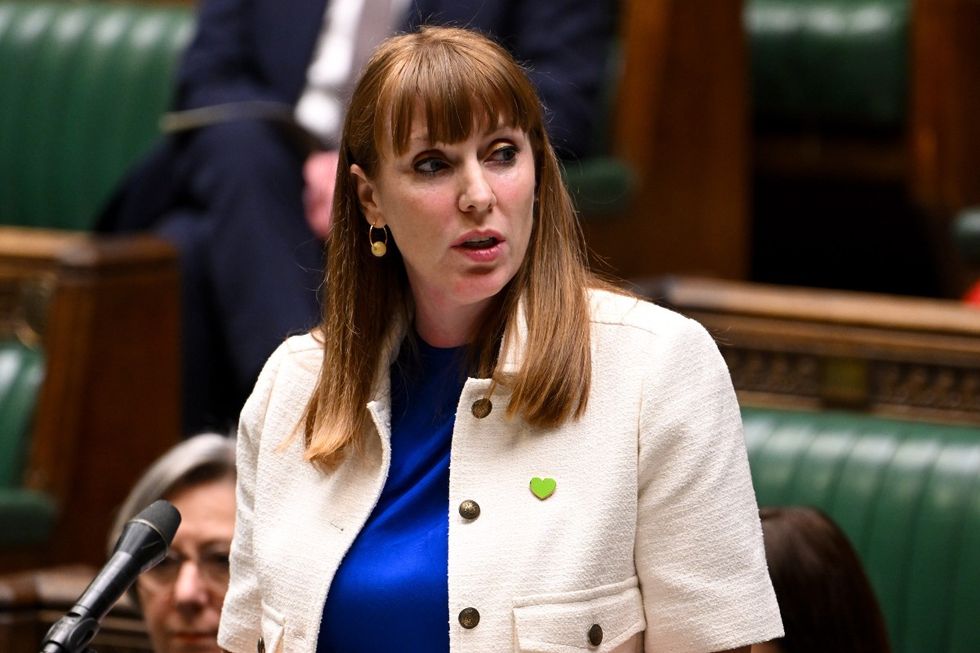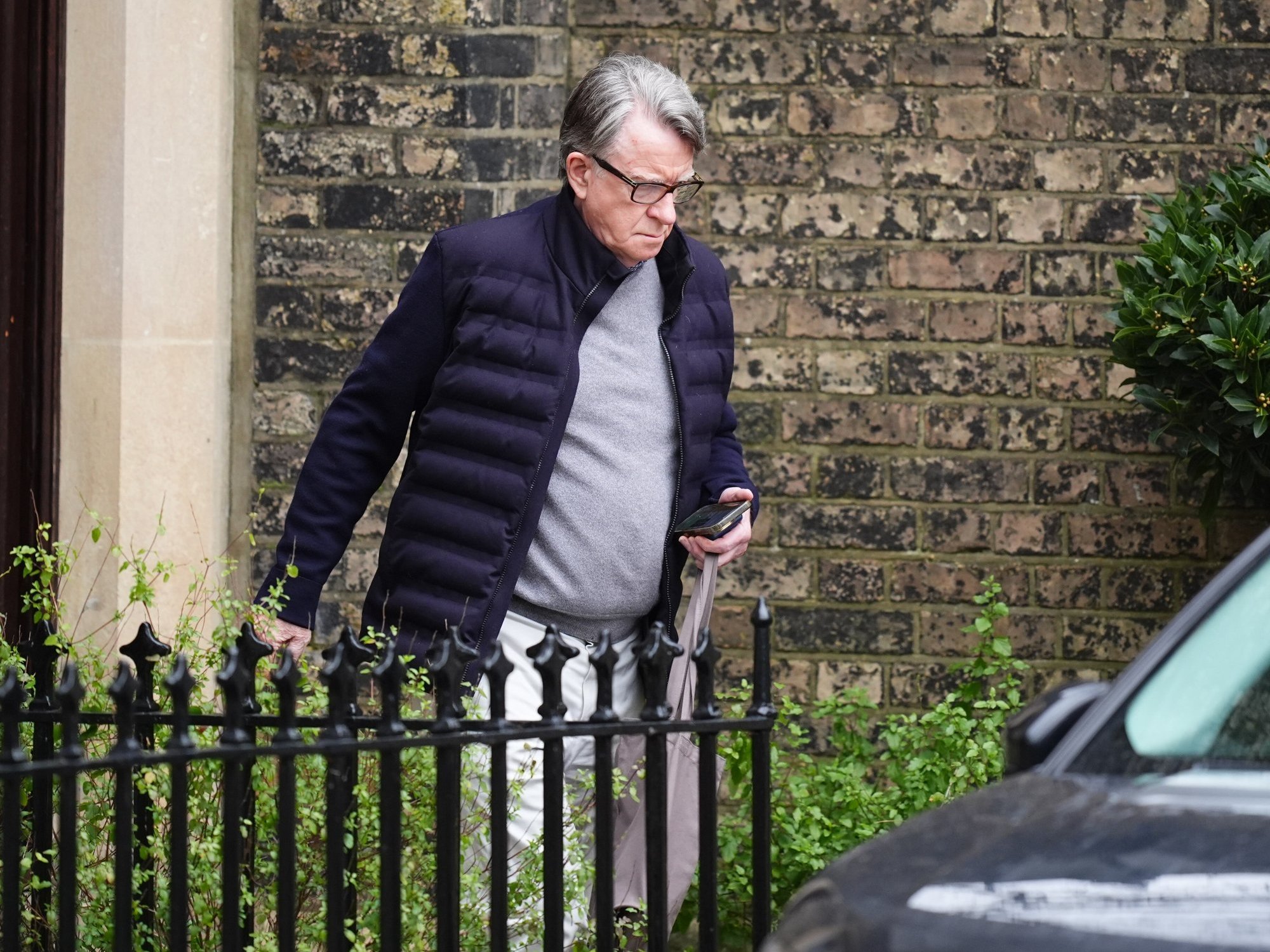Labour postpones decision over Chinese mega embassy in London after Beijing REFUSES to explain details of 'secret basement'

Protesters hold demonstration over plans for Chinese 'mega embassy' |
GB NEWS

Chinese planners have argued that revealing the internal plans was neither required nor suitable for disclosure
Don't Miss
Most Read
Trending on GB News
Housing Secretary Angela Rayner has postponed her verdict on Beijing's proposed mega-embassy in London after China refused to clarify mysterious redacted sections of the building plans.
The Chinese authorities rebuffed Rayner's two-week ultimatum to explain why five internal drawings were censored, declaring such disclosure "not necessary or appropriate".
The contentious development at Royal Mint Court, opposite the Tower of London, would become Europe's largest Chinese diplomatic facility, spanning approximately two football pitches.
**ARE YOU READING THIS ON OUR APP? DOWNLOAD NOW FOR THE BEST GB NEWS EXPERIENCE**
Planning documents reveal concealed details about basement chambers and a tunnel, with purposes obscured for security reasons.
The decision was originally scheduled for September 9, but mounting concerns about the secretive elements have prompted a delay until October 21.
The £255million site sits strategically between the City of London and Canary Wharf, adjacent to three significant data centres, raising alarm about potential surveillance capabilities.
The complex would dwarf other diplomatic missions in Europe, with two buildings containing anonymous, unlabelled basement rooms whose functions remain deliberately obscured.
LATEST DEVELOPMENTS:
Critics have warned that the proposed building may pose security risks
| CBREWhen pressed to "identify precisely and comprehensively" the redacted elements, China's planning consultants maintained that standard office building disclosure rules sufficed.
They insisted the visible plans provided adequate detail about primary uses, dismissing requests for transparency about the concealed sections.
The greyed-out areas specifically affect the cultural exchange building and Embassy House, with Beijing steadfastly refusing to reveal what lies beneath these structures despite direct Government inquiries.
Intelligence agencies have flagged serious security risks about the project, whilst Tower Hamlets Council originally blocked the application in 2022.
The local authority's rejection was subsequently overruled when Rayner invoked ministerial powers to assume control of the final determination.

Housing Secretary Angela Rayner, who assumed control over decisions related to the project last year, has postponed her verdict until October 21
|FLICKR (HOUSE OF COMMONS)
International allies have expressed grave reservations about the scheme.
A senior American official stated in May: "The United States is deeply concerned about providing China with potential access to the sensitive communications of one of our closest allies."
The Dutch government has similarly cautioned against permitting China to establish such a substantial presence near crucial financial and political infrastructure.
Numerous demonstrations have occurred outside the proposed site in recent months, with residents and campaigners denouncing China's human rights violations joining forces in opposition.
China's representatives argued that full internal layout plans were neither required nor suitable for disclosure, maintaining their stance despite government pressure.
The Planning Inspectorate's report allegedly favours approval, though the final determination rests with Rayner.
Luke de Pulford, executive director of the Inter-Parliamentary Alliance on China, condemned Beijing's response as "far from satisfactory", noting that Chinese authorities failed to meet even minimal conditions.
He warned that visitors to the site's abbey ruins would find themselves on Chinese territory, "vulnerable to capture, out of the reach of UK authorities".
President Xi Jinping has personally advocated for the project, whilst former Chinese foreign minister Wang Yi reportedly discussed the matter with Foreign Secretary David Lammy during his London visit in January.
Critics argue that approving the facility without complete transparency would constitute strategic negligence, potentially exposing Britain to decades of security vulnerabilities.
More From GB News










